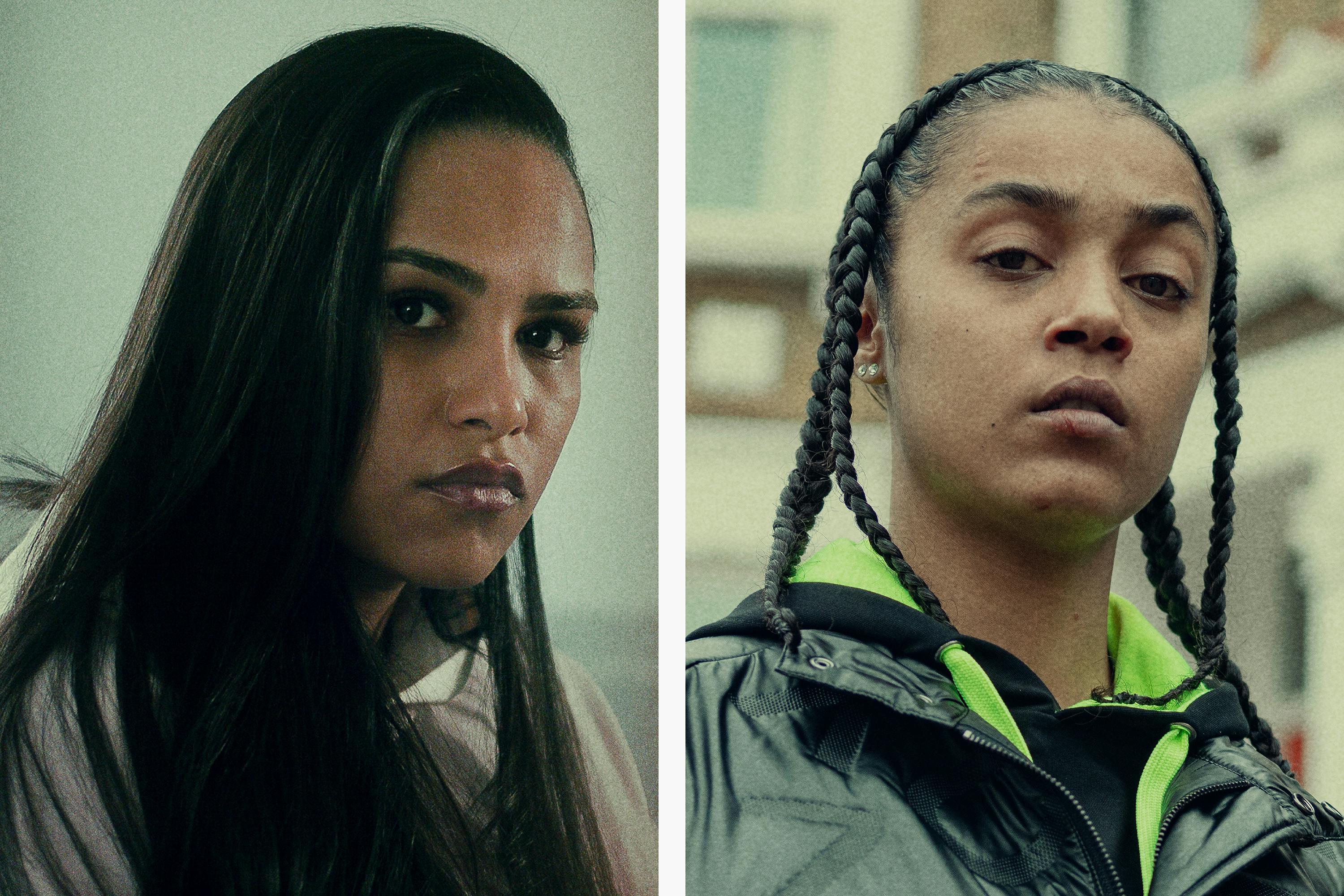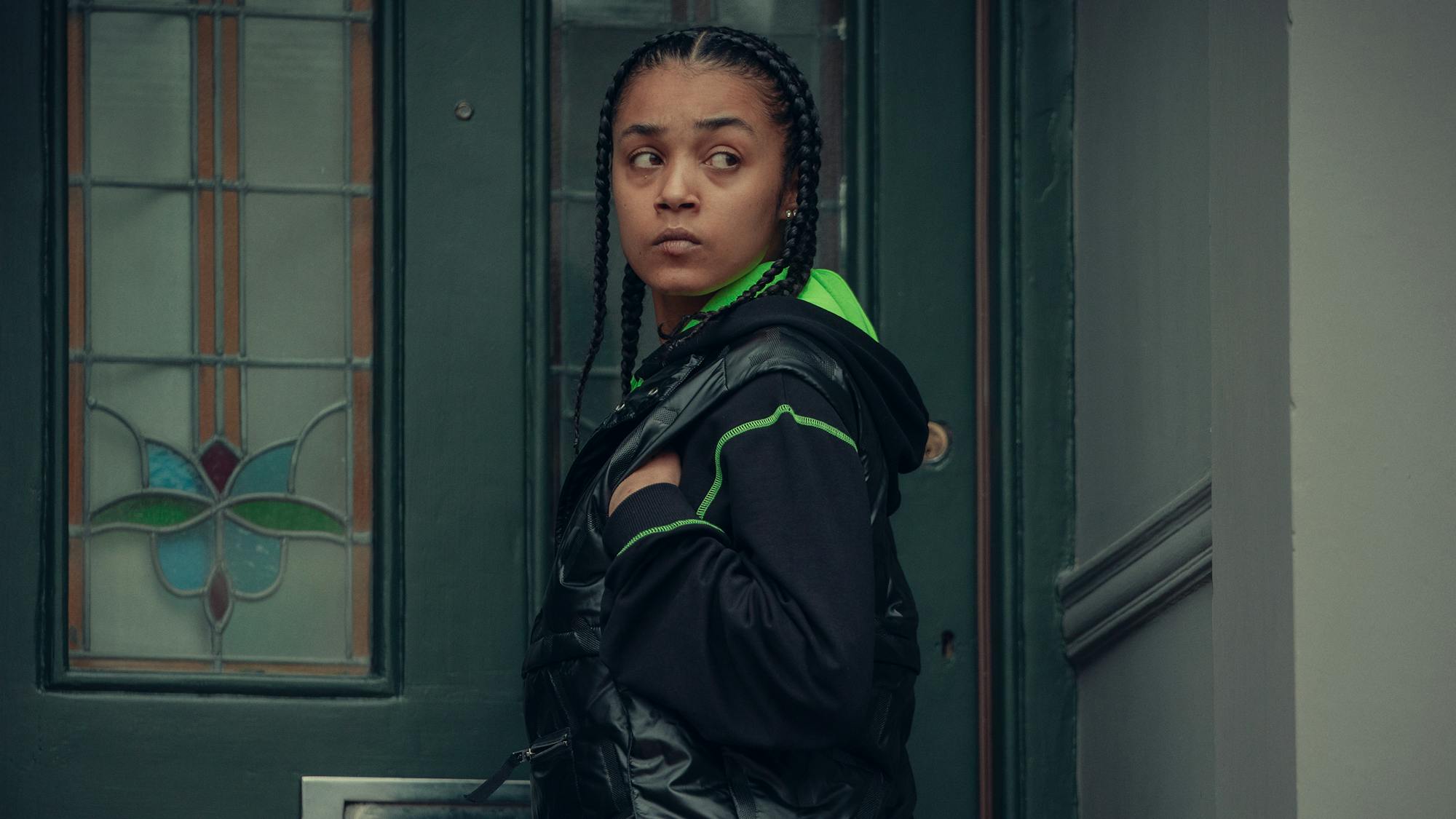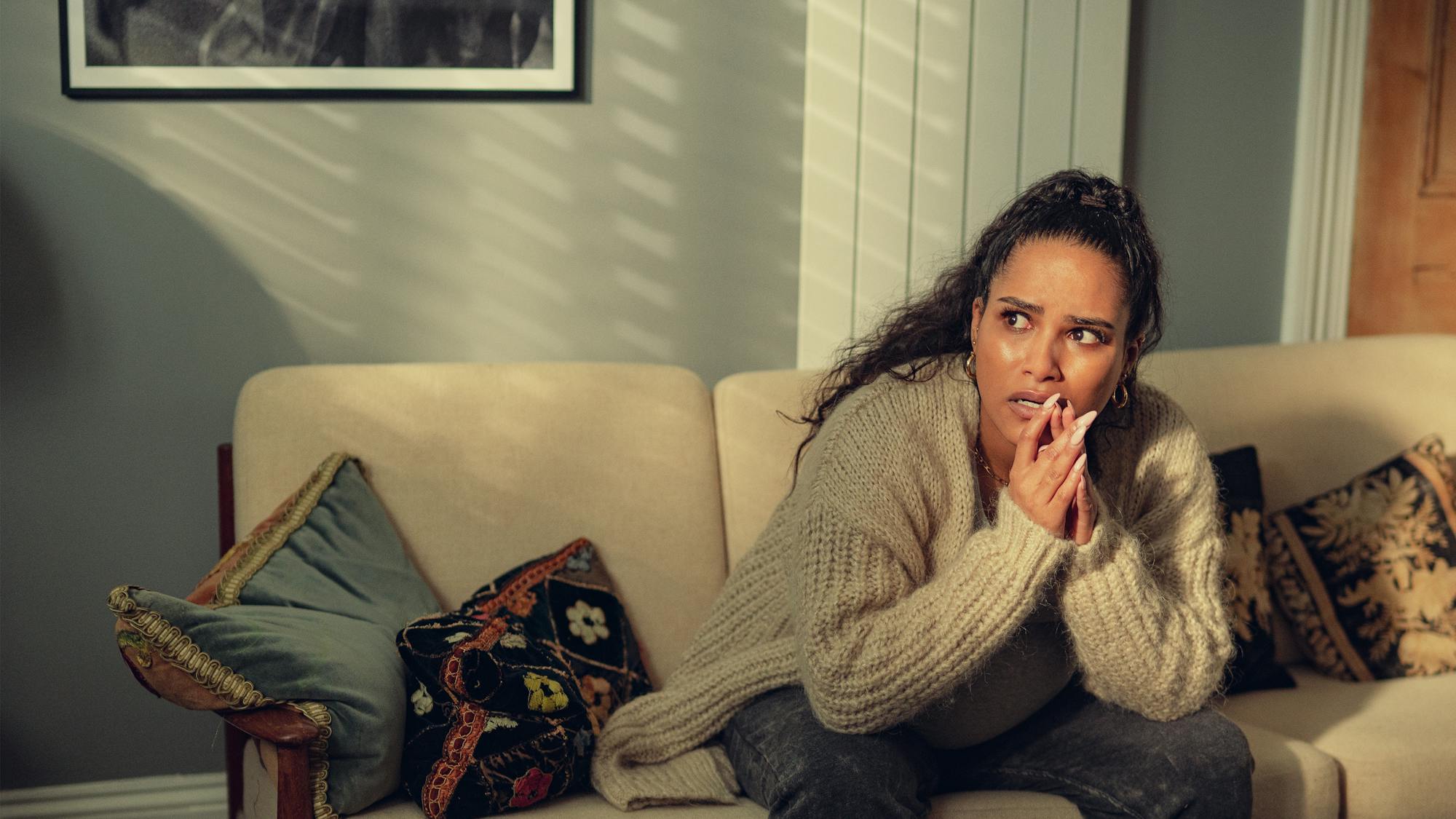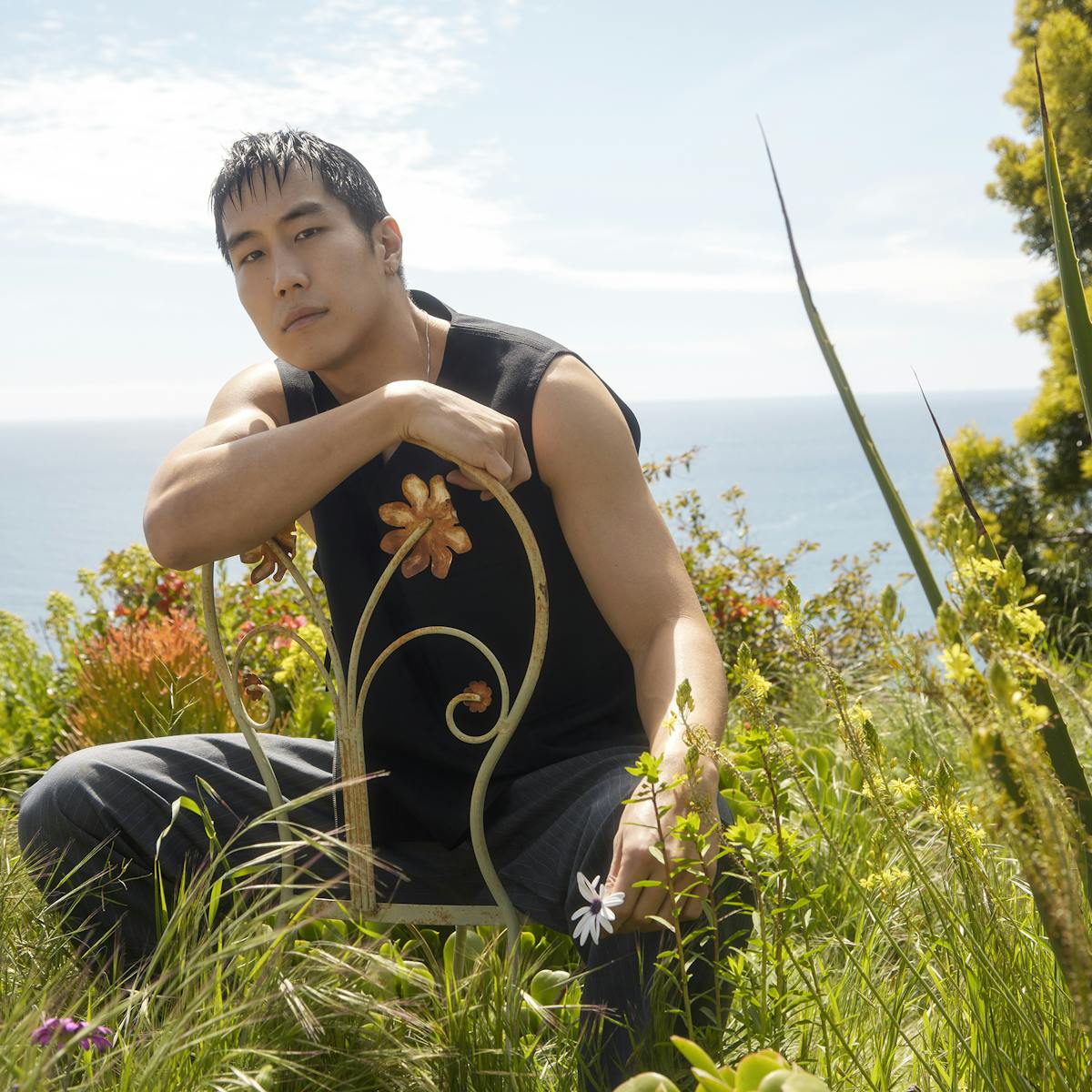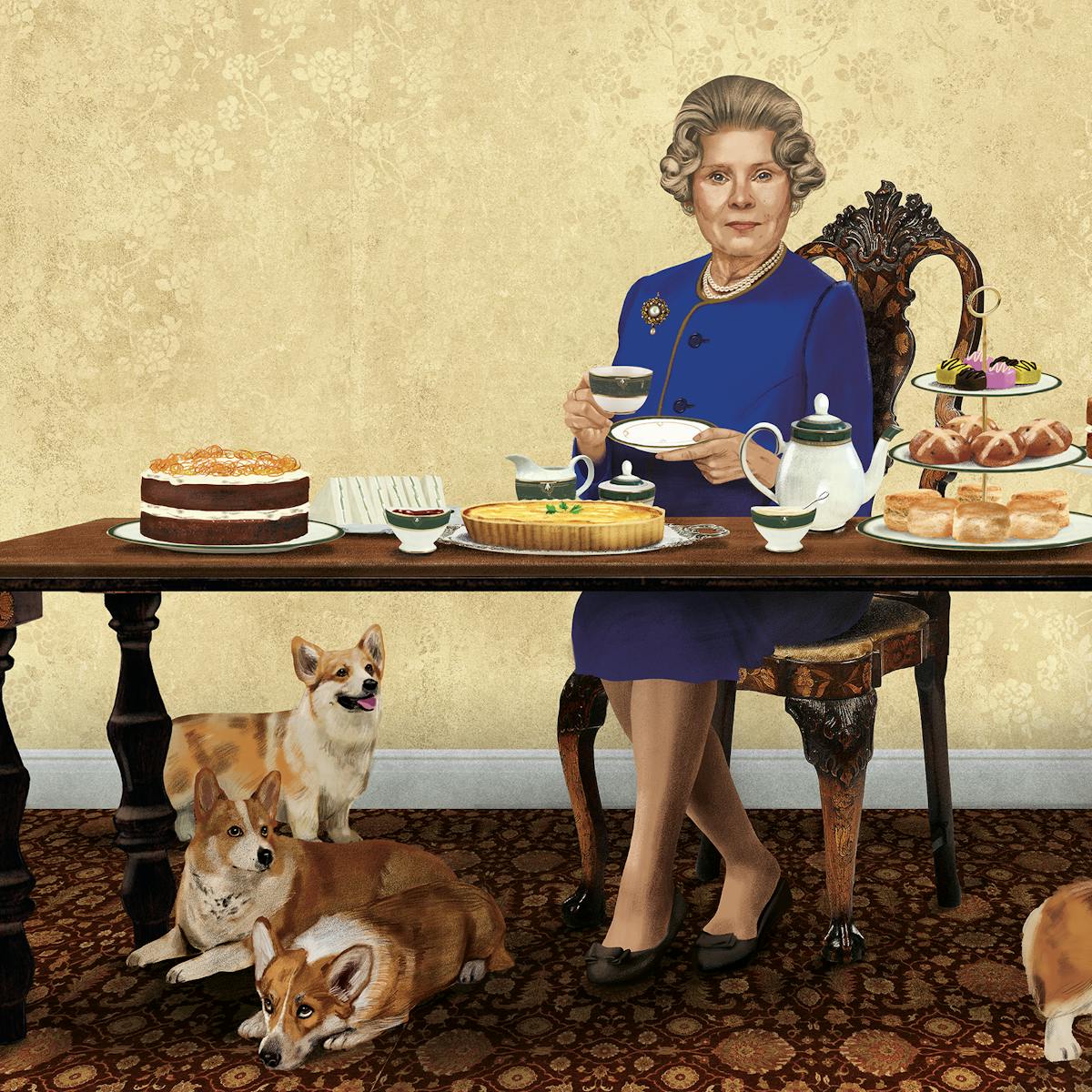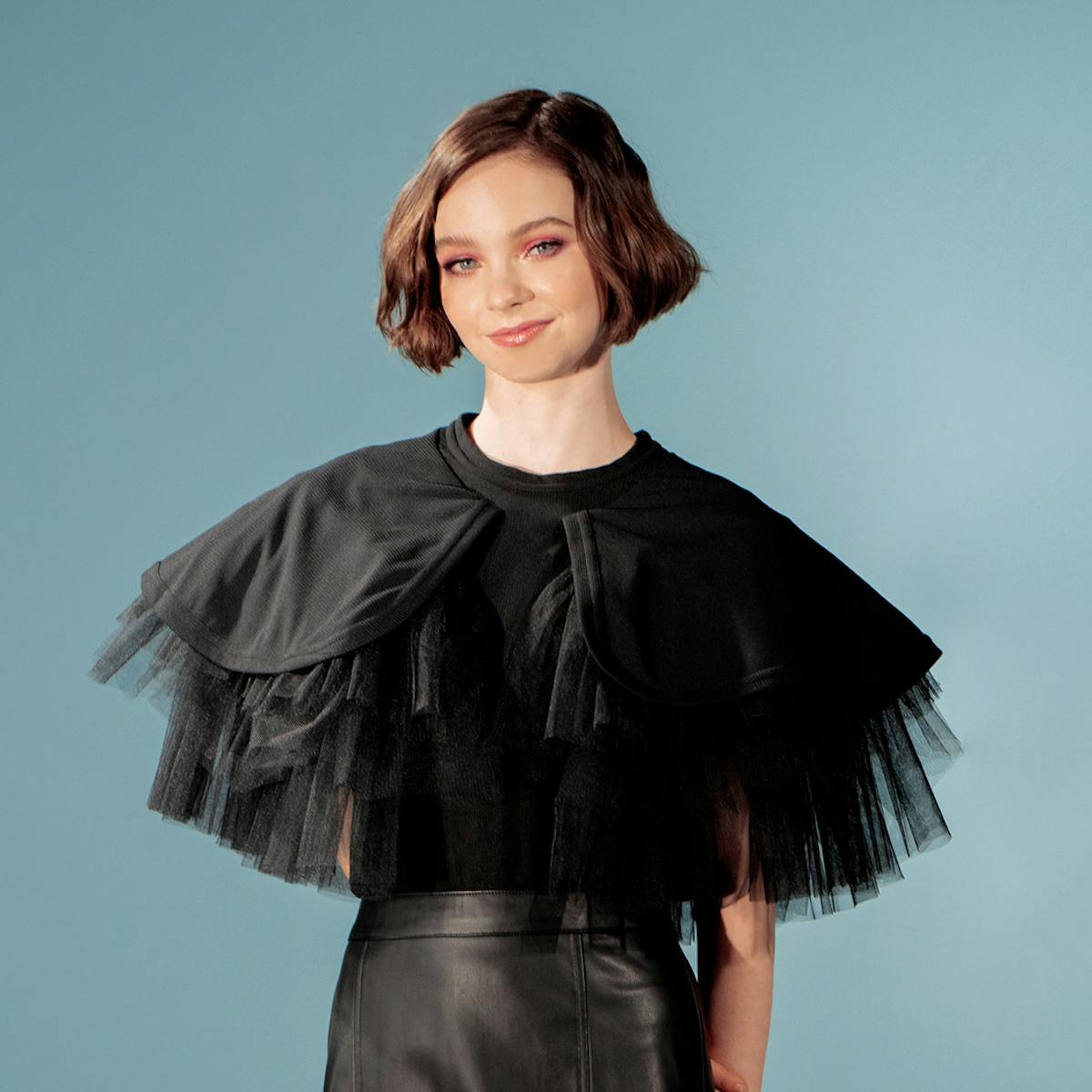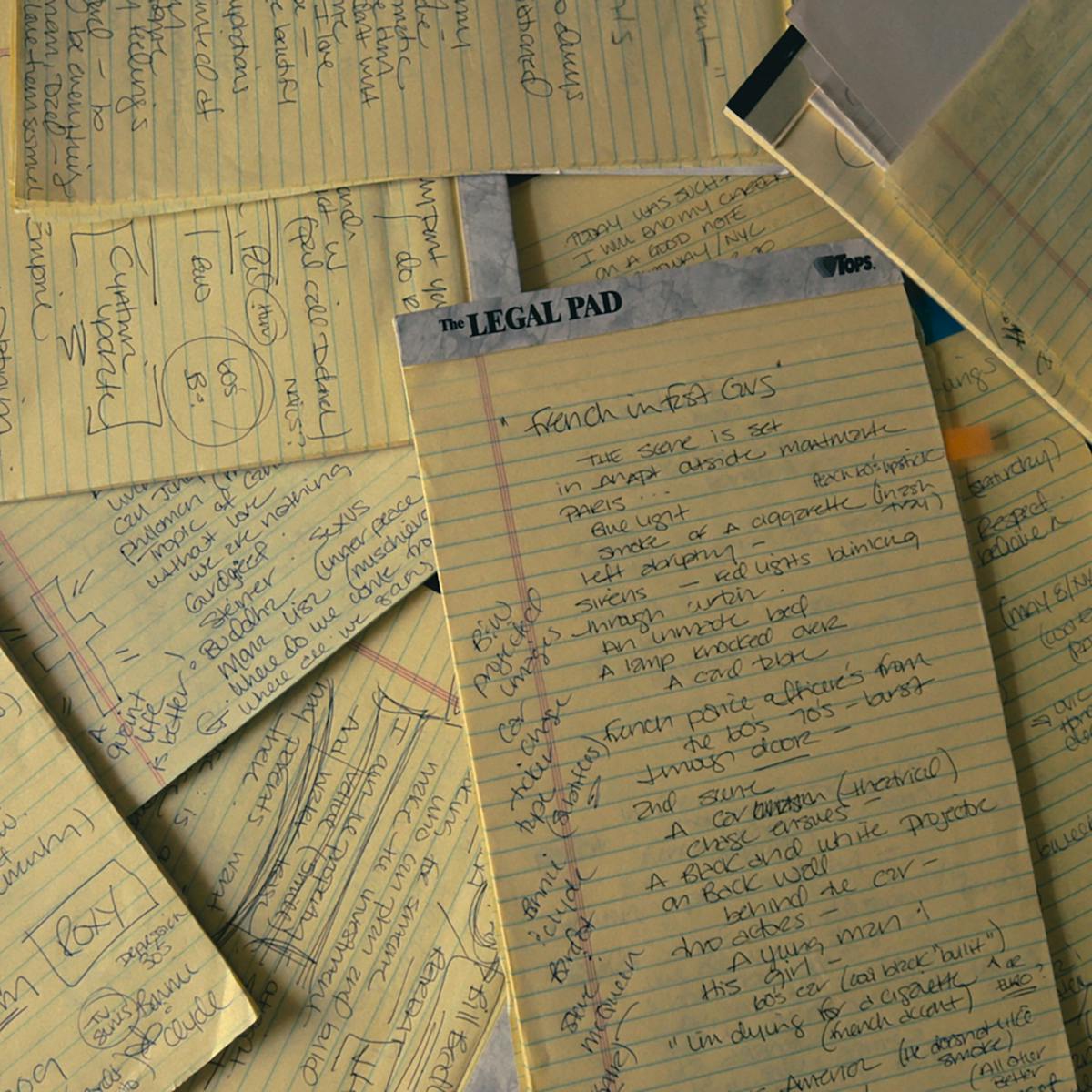Jasmine Jobson and Saffron Hocking play opposite-minded sisters with their hands full in Season 2 of Top Boy — and earn BAFTA nominations in the process.
The relationship of onscreen sisters Jaq and Lauryn, on British crime series Top Boy, is originally presented to us as Janus-faced: The two could not be more different. Jaq (Jasmine Jobson), the streetwise, queer, and masc-presenting gangster is the opposite of the older Lauryn (Saffron Hocking), whose relationships with men always manage to get her in trouble. If not for the hallway connecting their bedrooms, the two might never cross paths.
But step into Season 2 of the hit show and the sisters’ connection seems to have turned around. Pregnant, exiled, and in fear of her abusive boyfriend (who has an even more vicious sister), Lauryn turns to sister Jaq for protection but in the end must save herself. It’s a heart-wrenching storyline with twists and turns until the very end, but the sisters ultimately present themselves in a new light: fierce allies.
Jobson and Hocking portray the sisters so viscerally and exquisitely that they’ve both earned BAFTA nominations for Best Supporting Actress. The power of their performances lies in their ability to inhabit the strengths and weaknesses of the two women equally, even in moments of mortal peril. Their performances are a testament to the bonds of family and the ever-changing rules of survival. Queue sat down with Jobson and Hocking to discuss what it felt like to live inside such a palpable connection and how they played these two sisters to such admirable effect.
Judnick Mayard: How has the dynamic of playing the sisters evolved through the past two seasons of Top Boy? Obviously your relationship changed this past season but how did you both prepare for that connection?
Saffron Hocking: I think that we were very fortunate we got on anyway. It just came to us while we were filming, and a bond was formed offscreen. If I see Jasmine, I’m like, “Sis!” We are forever bonded by this experience and we just sort of grew with the characters. A lot of Top Boy is improvised, [so] we were able to explore that ourselves.
Jasmine Jobson: Literally, made on the hook.
SH: At first there was not much volatility in how they communicated with one another. But then it becomes very serious very quickly, and it’s no longer banter. Loyalty is the biggest test for the both of them. If it were a friendship where these things kept happening, I personally would end that friendship and never ever go near them again. Whereas here you’re in a situation where this is a family member of yours. As Jasmine says in the season: “Look, you ride out for your family no matter what.” Love is the strongest thing that keeps them together. I think that it evolves. They go through so much and they stay very much in one another’s lives and they love one another.
Jaq had a lot of moments of vulnerability this season. Last season we saw her toughness and shrewdness but this had more moments of interiority. You did such a great job of changing the way we saw the character, but she never felt weaker. What traits did you focus on to really bring that out to the audience?
JJ: I had to remember it’s about playing with status. I’m talking [about] acting technique [more] than anything. I’m a very emotional person so it’s easy for me to tap into my vulnerable side. In Top Boy, we’ve got a lot of characters that have this big, massive shield that don’t show emotions. I brought that [vulnerability] out tenfold.
Saffron, your character played an even more prominent role in this season. How were you able to tap into those emotions for Lauryn? Because there was a lot of crying.
SH: The emotional state that any person is going through when they’re in a toxic situation, such as domestic abuse, you really have to understand how to process that safely whilst you are filming. Because if you are sitting there and crying your eyes out, your body’s going to think that’s real. I was actually crying. I wanted to do that safely for myself and be able to detach from it. [Unrelatedly,] I [had] started going to therapy and it coincided [with] when I started this storyline. I think that that was so integral because for anyone who has started therapy, a lot of emotional floodgates are [opened]. Of course, I was incredibly emotionally invested and did a lot of research behind the scenes. [I got] involved in an incredible charity called Refuge, which protects and looks after women that are going through domestic violence. It was a really important thing for me to portray the truth of that as much as I could.
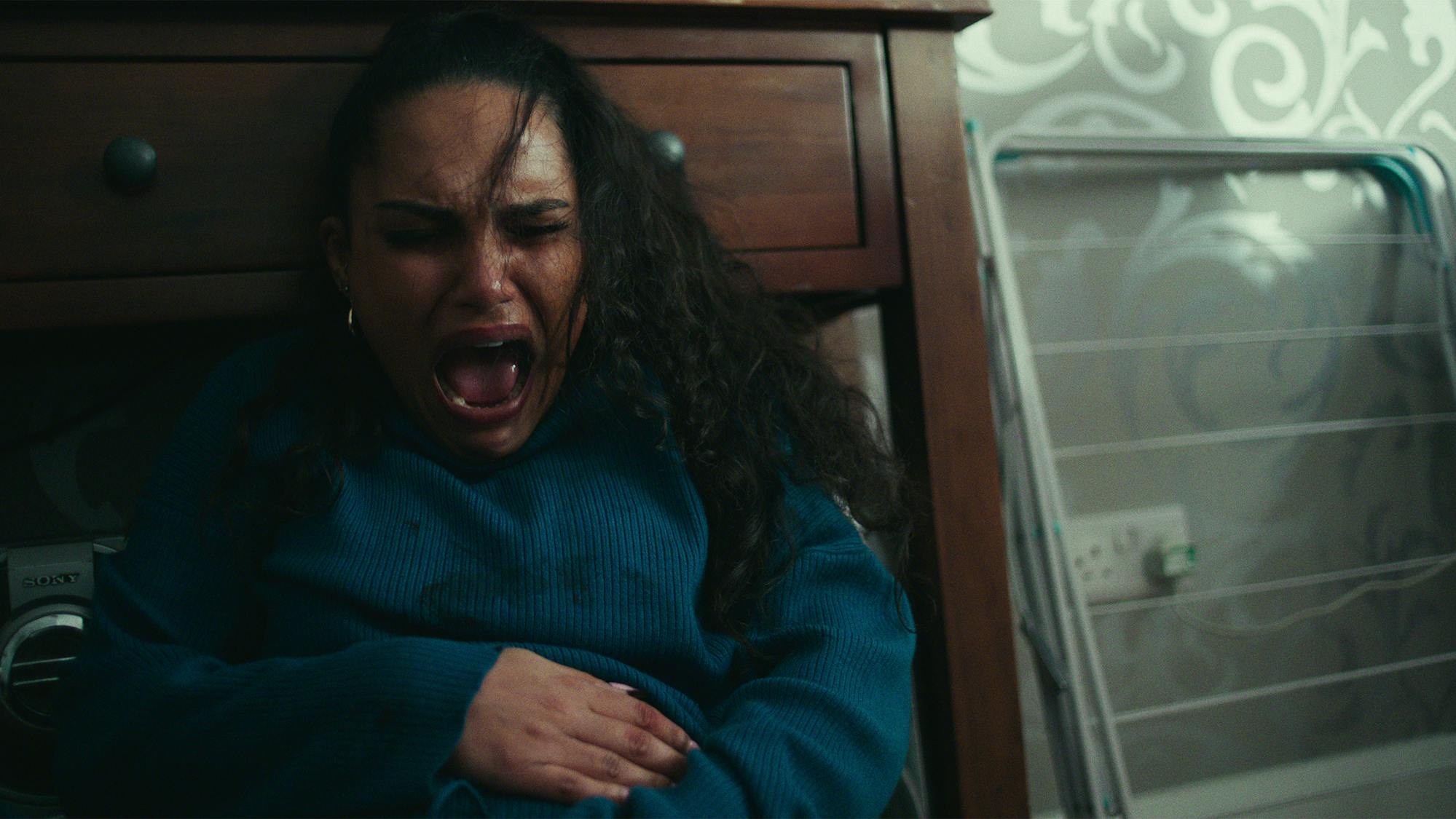
Saffron Hocking
There’s a moment after you stab Curtis where you say, “I’m sorry,” which was really powerful. How did it feel to play the story out to that conclusion?
SH: It was really important for me to portray Lauryn as being a fighter and a survivor because she does ultimately survive. When she says, “I’m sorry, I’m sorry,” after, it is because why would she ever want it to get to this? She was put in a situation where that was the only way out for her. But, of course, she’s a human being with morals and a conscience. She felt bad. The storyline wasn’t there to send the message: If you are in an abusive relationship then kill your partner. It was never that. And I don’t think that people took it that way. I looked at it as the subliminal message of strength. In that situation, the most important thing to stress is that there is always a way out of the cycle of abuse.
The storyline also deviates from the show’s physical violence and really focuses on the fear that Curtis creates rather than anything explicit.
SH: Exactly, because it’s emotional abuse, which is something that is not often shown on television. When you think of domestic abuse, you think it has to be physical and there’s violence there, but emotional abuse is just as prevalent and just as terrifying.
Jaq’s own love story stays far away from the drama of the season except for the scene where she and her date are subject to a homophobic attack. How was it to play out that scene? The audience was probably expecting her to pull out the ultimate gangster act.
SH: In the environment that I grew up in, if it did get to a physical disagreement, you put up your fists. It never got to a point of weapons and things like that. Jaq was in a difficult situation. She needs to protect herself [and] she needs to protect her partner. But at the same time, she’s outnumbered. She’s got to weigh her situation. It is probably going to get to a point where she’s going to have to defend herself. If she’s going to have to defend herself, what can she do? Who’s she going to go for first? She’s got to be very, very strategic about it.
When did you both realize that the season was going to be told from the perspective of the women of the show? Your characters and many of the other women on the show gave us a full look into the full world and broadened its edges. What do you feel like that narrative shift brought to the show overall?
SH: I realized when I started reading the season. I always find that complex female characters are the most interesting ones. Quite often when you are watching TV shows, the woman is either the girlfriend or wife or mother. And when you have these complex four-dimensional characters that have so much to say and so much to do it’s incredible to be given that opportunity to not only play that, but also watch that.
Jaq is just absolutely fascinating because you have someone that has such a hard exterior and she’s fighting to prove herself. But when you see those flickers of vulnerability in Jaq, you can’t take your eyes off it because [they] are such beautiful, intimate moments. Whether she’s speaking to Lauryn [or other people], comforting or even shouting at [them], all that comes from a place of love. Jaq’s character does some terrible, terrible things but it’s all born out of trying to [protect] when trying to survive.
JJ: This is why I say Jaq is literally me all over because, being an absolute lover, everything comes from love. I would literally give the clothes off my back if it meant that I could help someone.
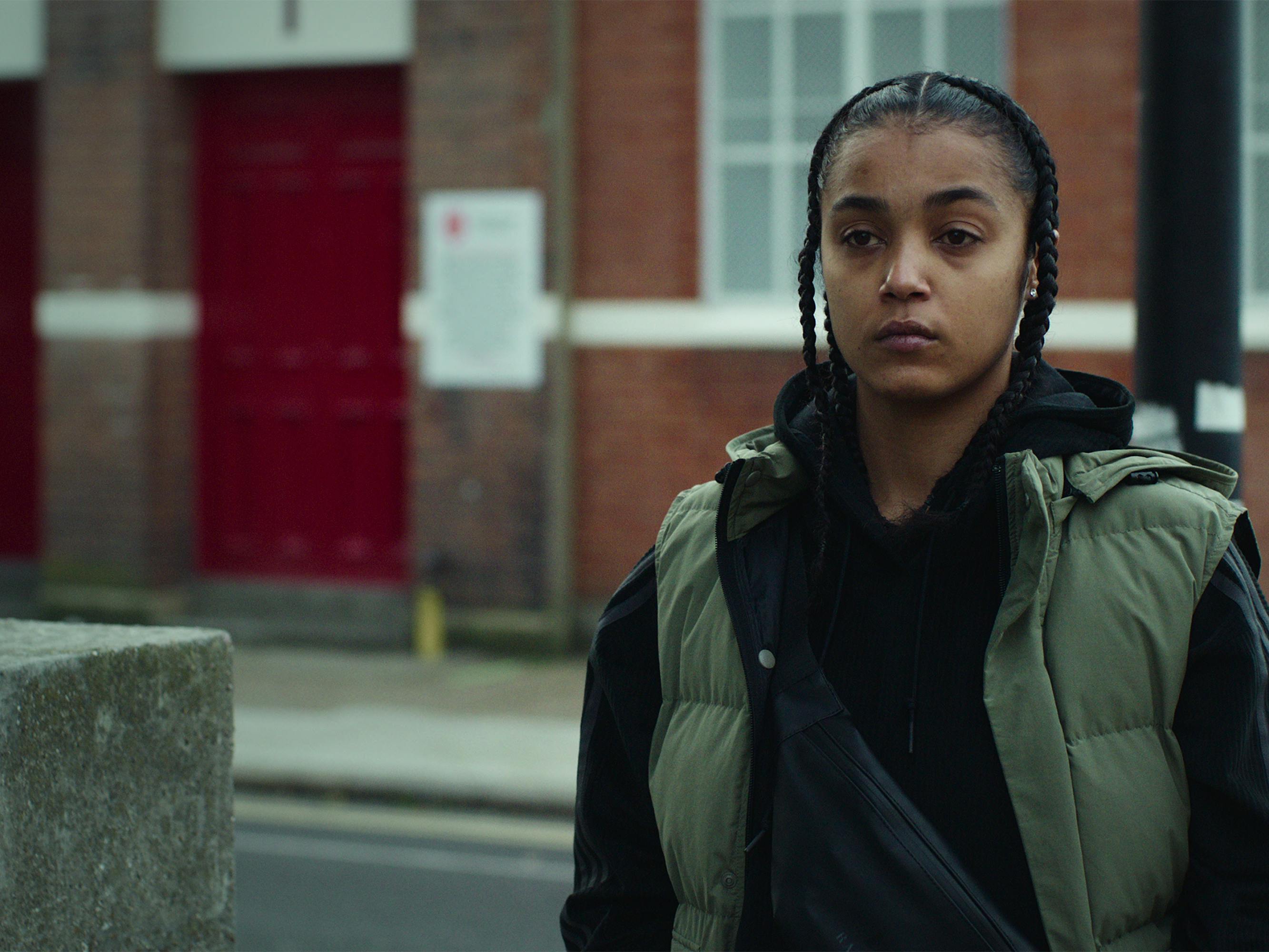
Jasmine Jobson
Congratulations to you both on the BAFTA nominations. Give us the details on the moment you both found out.
JJ: Thank you. I got woken up by my agent at eight o’clock in the morning.
SH: I was at my parents’ house, so I looked at my phone and I had some various text messages from people. I ran into my parents’ room and woke them up screaming. They were quite concerned but then they were very happy.
What’s the most exciting thing about being nominated?
JJ: It’s the acknowledgment. It’s such a beautiful thing to be able to get the appreciation and have the awards, but that is honestly not what we do it for. That [is for] our family. But being recognized alongside women that we’ve looked up to for years? We are sitting alongside legends. It’s a blessing and we’re very grateful.
SH: Yeah because the nominations come from your peers within the industry type. [Winning awards] is a plus. And to be alongside Jasmine as well. It’s wonderful because I truly believe that Jasmine is so exceptionally talented and such a beautiful, wonderful human being as well. It’s an honor.
What kind of future do you see for your characters?
JJ: I’m not going to tell you that.
SH: Same.
JJ: Trying to get a little sneak out of me. All right. All I am going to say is that it is absolutely crazy and it’s taken a turn that I don’t think anybody was expecting.
